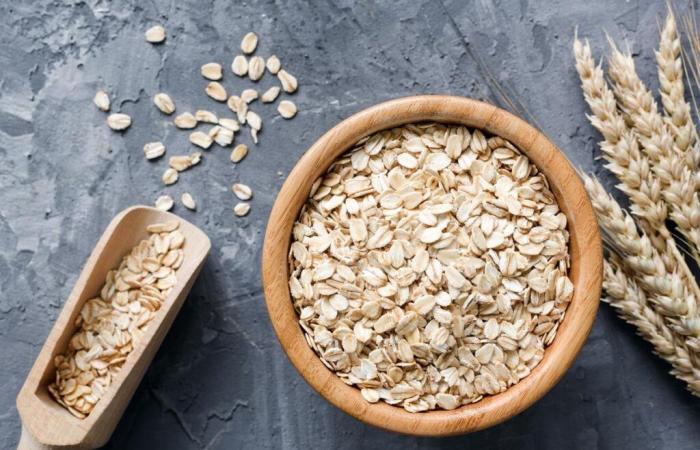On the shelves, you will find large or small flakes. The former are obtained from whole grains while the latter are obtained from crushed grains.
Oats stand out from other cereals by their richness in fiber: no less than 10%, including 4 to 5 g of beta-glucans. These beta-glucans are soluble fibers that are well tolerated digestively and have numerous health properties:
– they contribute to good satiety and good transit by forming a gel in the intestine;
– they support immunity;
– they help slow down the absorption of carbohydrates into the blood, thus limiting the secretion of insulin by the pancreas;
– they regulate blood cholesterol levels (total and LDL) downward.
The editorial team advises you
Note, however, that oats contain lectins. These are the defenses of plants. Too much lectin consumption can cause digestive problems by increasing inflammation and porosity of the intestine.
Oats are a cereal well supplied with protein, they contain almost 12%, much more than wheat or rice. It is naturally gluten-free. It can therefore theoretically still be consumed in gluten-free diets.
However, there are risks of contamination between oats and wheat in the fields or within processing plants. Oat proteins (avenins) can trigger reactions in people with celiac disease. We therefore advise against its consumption.
Oats are the cereal richest in lipids, represented mainly by mono and polyunsaturated fatty acids.
It is a source of essential nutrients such as zinc, iron, magnesium, phosphorus or potassium. However, through processing and cooking, the flakes lose some of these precious nutrients. Oats also contain phytic acid, which is an anti-nutrient. This phytic acid has the particularity of preventing the assimilation of micronutrients in the intestine.
Like all cereals, oats contain a majority of carbohydrates (58%). When consuming these flakes, you must not forget that above all, you are consuming sugars! And contrary to what some people think, their glycemic index (GI) is rather medium to high when cooked (porridge, bowl cake, cake).
Consumed in mueslis, with animal or vegetable milk, dried or fresh fruits, it is a bomb of sugars in the morning which risks giving you cravings or cravings throughout the day. We prefer buckwheat flakes or quinoa, with lower GI and a greater source of nutrients, which also have the advantage of being gluten-free.
And if you can't do without it, limit the quantities, avoid adding sugar and increase the intake of fatty foods (seeds, whole oilseeds or purees).
Anaïs Taqourt is a dietitian nutritionist in Morlaàs. Such. : 06 83 65 52 09. Website: www.dieteticiennenutritionniste-pau.fr. “Anais Taqourt” Facebook page.






